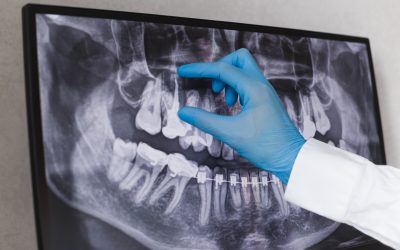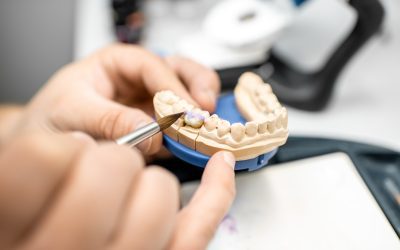Suppose you've ever searched for a dentist in San Francisco or the Bay Area. In that case, you might have noticed that some professionals have the initials “DDS” or “DMD” after their names. These acronyms might initially seem confusing, but understanding the difference between a DDS and a DMD can help you make informed decisions when choosing a dental professional. In this blog article, we'll explain the key differences between the two titles and what they mean for you as a patient.
What is a DDS?
DDS stands for Doctor of Dental Surgery. Dental professionals with this designation have completed a rigorous program at an accredited dental school, including oral health, dentistry, and general medicine courses. The DDS degree prepares dentists to diagnose, treat, and manage oral health issues and perform surgical procedures when necessary.
What is a DMD?
DMD stands for Doctor of Dental Medicine. Like a DDS, a DMD has completed a dental program at an accredited school with coursework in oral health, dentistry, and general medicine. The DMD degree also prepares dental professionals to diagnose, treat, and manage oral health issues and perform surgical procedures as needed.
Is there a difference between a DDS and a DMD?
At first glance, it might seem like there's a significant difference between a DDS and a DMD, given the different acronyms. However, there is virtually no difference between the two degrees when it comes to education, training, and scope of practice. DDS and DMD graduates must complete the same rigorous ADA-accredited education requirements and pass the same licensing exams to practice dentistry.
The primary reason for the different titles is historical. The DDS degree was first established in the United States in the 19th century, and it quickly became the standard dental degree in the country. In the 20th century, some universities began offering the DMD degree, intending to emphasize dentistry's scientific and medical aspects. However, despite the different names, the curricula and requirements for both degrees remain largely the same.
To practice dentistry in the United States, dental professionals must complete a four-year dental program and pass the National Board Dental Examinations in two parts. Part I covers basic sciences, while Part II tests knowledge of clinical dentistry. Additionally, dentists must pass a clinical examination administered by the state or regional dental board in which they wish to practice. DDS and DMD graduates must meet these requirements, ensuring high competence and skill in their chosen profession.
What does this mean for you as a patient?
As a patient, you can rest assured that whether your dentist has a DDS or a DMD degree, they have received the same level of education and training. Both degrees are recognized by the American Dental Association (ADA) and require the same national and state licensing examinations. When choosing a dentist, it's more important to consider factors like their experience, communication style, and the range of services they offer rather than focusing solely on whether they have a DDS or a DMD degree.
Questions to ask when choosing a dentist
Now that you know the difference between a DDS and a DMD, you might wonder what other factors to consider when selecting a dental professional. Here are some questions to ask when choosing a dentist:
How long have they been practicing dentistry?
While both DDS and DMD graduates have completed the same educational requirements, experience can significantly affect a dentist's skill level and expertise. Asking about a dentist's years of experience can give you an idea of their level of expertise and familiarity with various dental procedures.
What services do they offer?
Dentists can specialize in various areas, such as cosmetic dentistry, pediatric dentistry, orthodontics, or oral surgery. Choosing a dentist who offers the services you need, whether you're looking for routine dental care, braces, or more specialized treatments like dental implants or root canals, is essential.
Do they accept your dental insurance?
Before selecting a dentist, make sure they accept your dental insurance plan. This can help you avoid any unexpected out-of-pocket costs and ensure your dental care is as affordable as possible.
What is their approach to patient care?
Every dentist has a unique approach to patient care, and it's crucial to find one who aligns with your preferences and values. For example, some dentists prioritize preventative care and patient education. In contrast, others may focus on providing a relaxing, spa-like atmosphere. Asking about a dentist's approach to patient care can help you find one that matches your expectations and needs.
How do they handle dental emergencies?
Dental emergencies can be stressful and sometimes require immediate attention. It's essential to know how your dentist handles emergencies, whether they offer same-day appointments or have a referral system for after-hours care.
Can they provide references or testimonials?
Asking for references or testimonials from current patients can give you a better understanding of a dentist's quality of care and patient satisfaction. Reading online reviews or speaking with friends and family who have visited the dentist can also offer valuable insights into their professionalism and expertise.
Final Thoughts – The Difference Between DMD and DDS Designations
In summary, the difference between a DDS and a DMD is primarily a matter of historical context and naming conventions rather than significant differences in education, training, or scope of practice. DDS and DMD dental professionals have completed the same rigorous education and licensing requirements, ensuring they are equally qualified to care for your oral health.
When choosing a dentist, focus on factors like their experience, the services they offer, their approach to patient care, and whether they accept your dental insurance rather than worrying about whether they have a DDS or a DMD degree. By asking the right questions and considering these factors, you can find a well-suited dental professional to meet your unique needs and help you maintain a healthy, beautiful smile.
Learn how to use the directory and start your search today for a dentist in San Francisco with Golden Gate Dentists!




